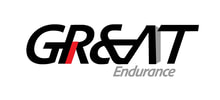|
SYMPTOMS AND SOLUTIONS FOR FEMALE EXECUTIVES AND ENDURANCE ATHLETES As an endurance coach, I work with male and female executive athletes, and both have their own challenges. In this blog, we will dig deeper in support of female athletes with perimenopause or menopause challenges. First, as a male, I do not claim to know, so I have merely edited the inputs from the women around me, and added research to substantiate the findings. Secondly, it is important to always work closely with a healthcare professional, including a sports medicine doctor and a sports nutritionist, to develop a personalized plan that addresses your specific needs and goals. Perimenopause and menopause, occurring typically between 45 and 55, come with a specific set of challenges. These hormonal changes can have various impacts on the body, including changes in muscle mass, bone density, metabolism, and overall performance, even more so for executives and athletes. Here are some typical impacts of perimenopause and menopause on endurance athletes and ways to counteract these impacts through nutrition and sport activities: Mood Swings and Sleep Disturbances: Hormonal fluctuations during perimenopause and menopause can lead to mood swings, hot flashes, irritability, headaches or migraines, and sleep disturbances (night sweats), affecting recovery and training consistency. Countermeasure: Prioritize sleep and stress management techniques. Maintaining a regular sleep schedule and practicing relaxation methods can improve sleep quality and mood. Your dietary choices and limitation of alcohol consumption are an integral part of your sports program and can significantly affect the intensity and timing of your menopause symptoms. Hormonal Changes: Estrogen levels decrease during perimenopause and menopause, which can lead to changes in body composition and muscle mass. Countermeasure: Strength training exercises can help maintain muscle mass and bone density. Adequate protein intake is also crucial for muscle maintenance and repair. There is no indication that higher levels of physical activity would trigger menopause earlier. Metabolic Changes: The metabolic rate may slow down, making it easier to gain weight and harder to maintain a lean body composition. Countermeasure: Focus on a balanced diet with the right number of calories for your activity level. Adjusting caloric intake to match your energy expenditure can help prevent weight gain. Every women can benefit from an increase in activity level focusing on strength, at least 2 days a week according to the WHO, combined with 150 minutes of moderate aerobic activity. To support this, you need protein intake to build or keep muscle mass. If you are exercising more we recommend focusing carbohydrate intake from whole foods. Endurance athletes should add more resistance training in their planning during and post-menopause to avoid muscle loss and osteoporosis. Bone Health: Reduced estrogen levels can lead to a decrease in bone density, increasing the risk of osteoporosis and joint stiffness. Countermeasure: Ensure you have an adequate intake of calcium and vitamin D, both through diet and, if necessary, supplements. Weight-bearing exercises, such as running and resistance training, can help maintain bone density. Recovery Time: Hormonal changes can affect recovery time, potentially leading to longer recovery periods between intense workouts. Countermeasure: Pay attention to recovery strategies, including nutrition, hydration, stretching, and foam rolling. Incorporate active recovery days into your training plan. Don’t forget that it is during recovery that you are building muscle, not during exercise. Nutrient Needs: Nutrient requirements, such as calcium, iron, and vitamin B12, may change during perimenopause and menopause. Countermeasure: Work with a sports nutritionist to tailor your diet to your specific needs. Ensure you get enough iron-rich foods to prevent anemia and maintain energy levels. Vitamin D and Omega-3’s are generally great additions to your diet. Hydration: Hormonal changes can affect fluid balance and thermoregulation during exercise, increasing the risk of dehydration. Countermeasure: Stay well-hydrated before, during, and after workouts. Pay attention to fluid balance, especially in hot and humid conditions. Hormone Replacement Therapy (HRT) As with the Testosterone Replacement Therapy with men, HRT shows substantial evidence that it helps relieve menopausal symptoms and has a positive effect on muscle mass and bone density by normalizing estrogen. Alternatively, you can look at natural alternatives in the form of phytoestrogens, like found in soy. If you are racing, make sure to check if your supplements are not on the banned substances list. Conclusion: Menopause is a phase of life we cannot get around, but some will be less affected by it than others. Although we need to accept it and move on, we can try to reduce the impact and consequences by focusing on a regular sleeping pattern, balanced diet focused on protein, reduced alcohol intake, 2x3 per week strength training, 150 minutes of aerobic effort, sufficient recovery, supplemented by Vitamin D, Calcium and Omega-3. If needed, consult a doctor to consider HRT to optimize performance and overall health during this transitional phase. Don’t forget. It is the small daily steps that turn into positive habits, patterns, and beliefs ingrained in body and mind. Enjoy the journey! Coach Glenn Bonus Tip: I am not a woman, but have seen the impact of menopause first hand through my spouse. It is not an easy journey, and certainly hard to enjoy, but know that everything is cyclical. So it is important to realize that this phase will also come to an end. Enjoy the small wins and especially take control of all the variables you can to minimize the impact. You are the master of your future. Interesting Tridot Podcast EP220: From Peri to Post Add comments on our social media channels (see header)
Comments are closed.
|
Coach Glenn* Founder and Head Coach GR&AT Endurance Training * Ironman Certified Coach Categories
All
Archives
July 2024
|







 RSS Feed
RSS Feed